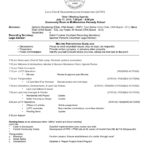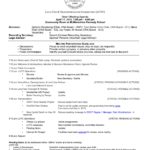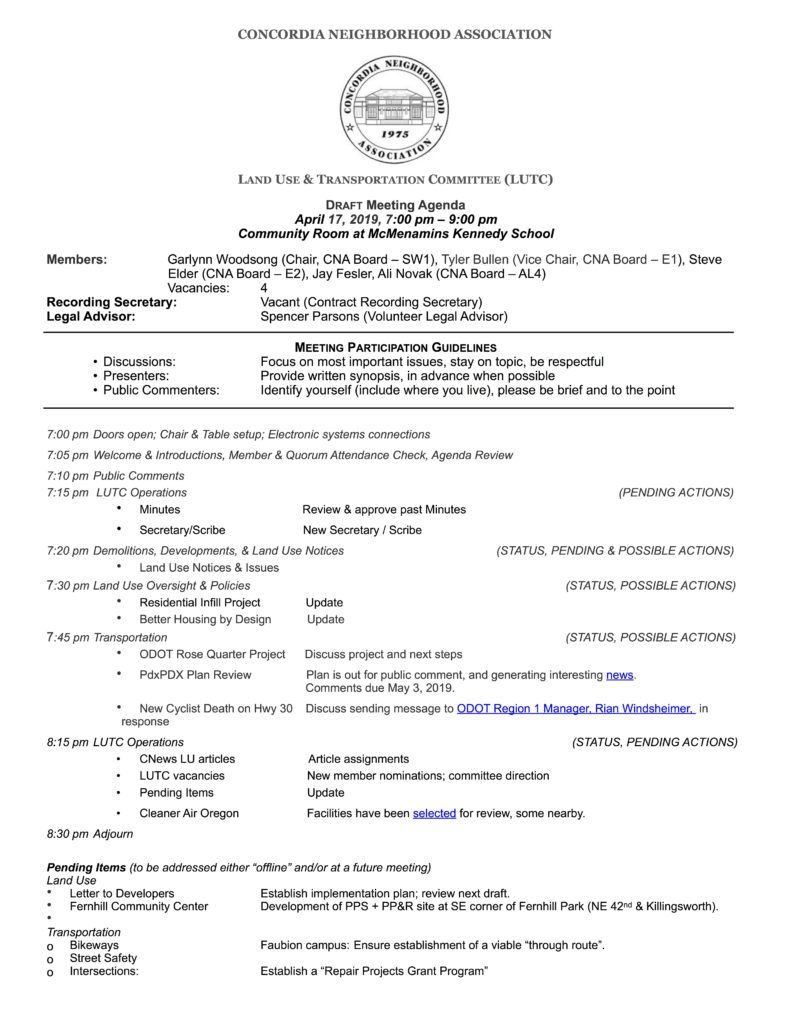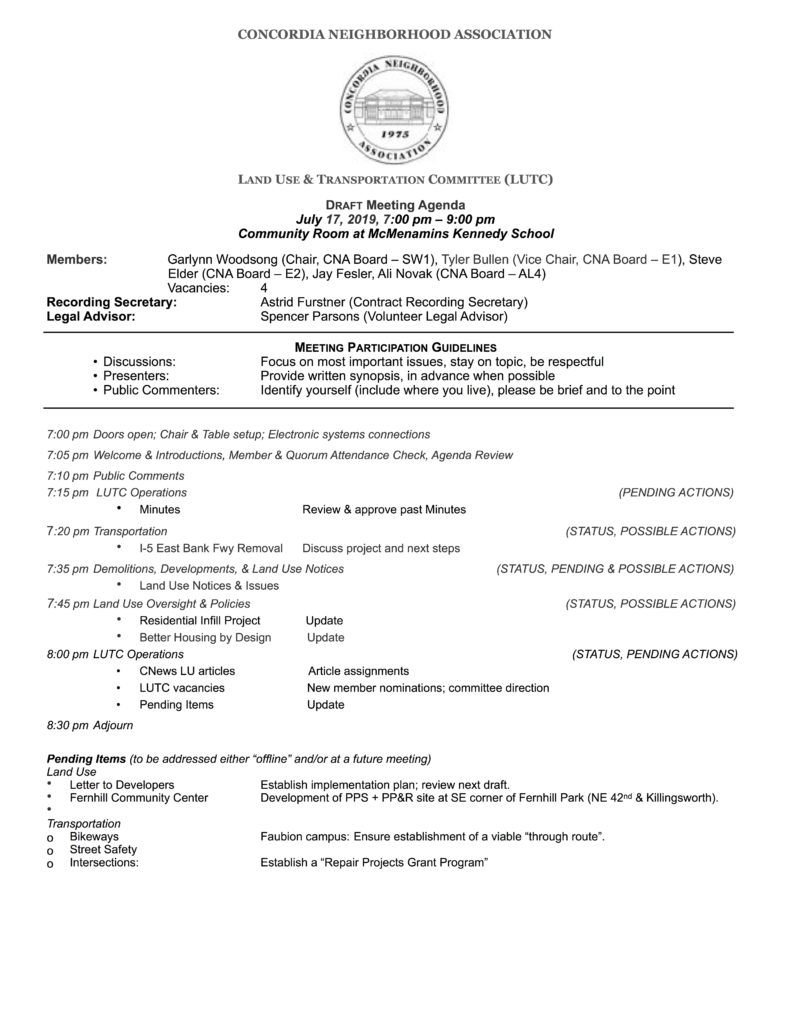
Category Archives: Land Use & Transportation
LUTC Update – Oil rolls on tracks bordering Concordia
By Garlynn Woodsong | CNA Board Member, SW1, CNA LUTC Chair
In the Bakken oil fields of North Dakota, among other locations, new engineering innovations have allowed the use of shale fracking for greater oil and natural gas extraction efficiencies.
All that oil has to find its way to an ocean to get to market, so it’s coming by rail to the oil-to-ship facilities right here in Portland and nearby Columbia River ports.
The exact contents of any given rail car or train is considered classified information for national security reasons, or something along those lines. However, we do know if the more than a dozen oil-by-rail projects currently planned are permitted, they could add a capacity of 858,800 barrels per day – more than the Keystone XL pipeline!
All of this crude oil would move in rail cars on the tracks that run just north of Concordia neighborhood.
There is one, in particular, that is real, that is happening now, and it’s within city limits.
Zenith Energy is performing work, under permits issued in 2014, to expand its capability to transfer oil from trains to boats by expanding its rail car unloading station’s capacity to unload from 12 to 42 cars at once.
According to The Oregonian, federal export data show that Zenith Energy singlehandedly established Oregon’s crude oil export market over the span of the past year. Now it wants to bring Canadian oil through Portland.
This oil train expansion in northwest Portland is an example of how our existing fossil fuel infrastructure can be ramped up without much oversight. It will move higher and higher volumes of volatile petrochemicals on tracks that are within a blast-radius distance of our homes.
Oil won’t be the only fossil fuel on the tracks if other proposed projects are completed. As much as 100 million tons of coal have been proposed to pass through at least six new terminals for export annually.
Even without explosions, pressurized train cars full of mixed petrochemicals are prone to leaking, as they roll mostly unsupervised down the tracks. These leaks can emit noxious liquid, gases and fumes that can travel into adjacent neighborhoods.
Qualitatively, it’s a sure thing that they’re not good for your health. Citizen input could be helpful to city officials deliberating about how far the city should go to regulate the petrochemical export industry within its borders.
Write to your city commissioners if you’re concerned about this issue. Address your letters to 1221 S.W. 4th Ave, Portland, OR 97204. For email addresses, visit PortlandOregon.gov/article/224450.
Let us know – at LandUse@ConcordiaPDX.org – if you’re interested in helping CNA to act on this and related issues.
Garlynn Woodsong lives on 29th Avenue, serves on the CNA board and is an avid bicyclist. He also is a dad who is passionate about the city his son will inherit. He is the planning + development partner with Cascadia Partners LLC, a local urban planning firm. Contact him at LandUse@ConcordiaPDX.org.
CNA LUTC: April, 2019 Meeting Draft Agenda
Bikeways diversion plan awaits city action
By Garlynn Woodsong | Chair, CNA LUTC
A few years ago, the city of Portland solicited feedback from the Concordia Neighborhood Association (CNA) about the 20s Bikeway project.
One of our responses was to request diverters at major streets in our neighborhood – such as Prescott and Killingsworth – to prevent cut-through car traffic from turning onto the narrow one-lane streets on which the 20s Bikeway is routed. That practice can stress out potential bicyclists on the route who may be interested in bicycling more, but are concerned for their safety.
But we were told the city would only install diverters on streets with higher than a certain amount of automobile traffic.
They then informed us they had changed their policies, and now they only installed diverters on streets with sufficiently high traffic volumes. They measured the traffic volumes in Concordia, and the single-lane streets of the 20s Bikeway project didn’t have enough cars to meet their new standard (for two-lane streets), so therefore they didn’t feel diverters were necessary.
I’ve told this story to folks around the city. In doing so, I’ve found a coalition of folks who also want to see physical diversions installed to protect our investment in the bicycle greenway system and keep it safe for bicyclists of all ages and abilities.
Together we developed a communitybased policy proposal called “Diversion on Bikeways as Urban Form.” The basic concept is that the urban form of bicycle greenways should include diverters to ensure that they are local-access-only for motor vehicles, while allowing bicycles to continue as through traffic.
The idea is the same as the existing urban form standard for sidewalks that includes wheelchair ramps where sidewalks meet street intersections, and for driveways that includes ramps and aprons where driveways meet streets.
This policy proposal is endorsed by CNA, the Northeast Coalition of Neighborhoods, SE Uplift and BikeLoudPDX.
Those groups presented this policy proposal to Portland Bureau of Transportation (PBOT) staff in December. We were told PBOT will take no further action until it fills its new greenways coordinator position.
Once this policy is adopted officially, it includes a strategy to deploy temporary installations initially to test each diverter location. It advises using kiosks to allow neighbors to provide feedback to PBOT, so temporary installations can be moved or adjusted, retested and perhaps moved and tested again, before being made permanent.
This sort of iterative public feedback loop is proposed as a more effective version of public engagement.
Traditionally, public engagement involves discussions in meeting rooms far from actual installation sites. Feedback thus received comes from people who haven’t yet interacted with the physical diversions in question as a part of their daily travels.
We look forward to working with the city to test this new policy to help encourage more bicycling in Portland – in a way that is respectful of and responsive to the concerns of neighbors and roadway users.
Garlynn Woodsong lives on 29th Avenue, serves on the CNA board and is an avid bicyclist. He also is a dad who is passionate about the city his son will inherit. He is the planning + development partner with Cascadia Partners LLC, a local urban planning firm. Contact him at LandUse@ ConcordiaPDX.org.
What’s up with the city’s residential infill?
By Garlynn Woodsong | Chair, CNA LUTC
If it seems like the Portland Residential Infill Project has been dragging on for years, that’s because it’s true. The project began in autumn 2015. It will be four years later – autumn 2019 – before the project is likely to be adopted, at the very soonest.
So, what’s going on with it? Ever since last summer, the Portland Planning and Sustainability Commission (PSC) has been reviewing the staff proposal from April. Public comment was taken until mid-summer. Since then, PSC members have been voting on changes to recommend.
The most recent action was Dec. 11, when the PSC received a staff briefing on an updated economic analysis of the project. It reflects the PSC’s tentative amendments to the proposed draft from September, when it directed staff to revise the proposal to incrementally increase floor area limits for additional units.
This change would allow more housing options and expand the area within which those options would be allowed to all R2.5, R5 and R7 zones, with some exceptions for natural resources and hazards.
Key findings from the economic analysis include:
- The PSC’s revisions would significantly increase housing production in the R2.5, R5 and R7 zones across the next 20 years. An additional 24,000 housing units would be produced, accompanied by only a modest increase in demolitions – 117, which is fewer than six a year citywide.
- The incremental increase in floor area ratio (FAR) allowances for additional units provides a bigger incentive to build housing types other than singlefamily residences. FAR is the ratio between the floor area of the building and the area of the parcel that it sits on.
- The new missing middle housing types – duplexes, triplexes, fourplexes and additional auxiliary dwelling units (ADUs) – have smaller unit sizes, which are an average of 56 percent less expensive than new single-family houses.
These reduced housing costs help to provide housing choices for people across a broader range of the income spectrum in more areas of the city.
The PSC is scheduled to receive a briefing on staff’s revised proposal, which should reflect the changes requested to date by the PSC. The PSC is scheduled to vote on recommendations to the city council in March.
City council is anticipated to begin public hearings on the project this summer. No council vote on the project is yet scheduled, but my guess is such a vote will not occur until the school year begins in the autumn, at the very earliest.
From the perspective of the Concordia Neighborhood Association – which has requested that the Portland Residential Infill Project include allowing fourplexes to maximize the potential for reduced housing costs in our neighborhood – the positive news is that the PSC agrees and has requested that fourplexes be added.
The additional good news is the economic analysis confirms that adding fourplexes – and scaling the allowable FAR with the number of units – will result in more, lower-priced units than either the status quo or staff’s original proposal.
Garlynn Woodsong lives on 29th Avenue, serves on the CNA board and is an avid bicyclist. He also is a dad who is passionate about the city his son will inherit. He is the planning + development partner with Cascadia Partners LLC, a local urban planning firm. Contact him at LandUse@ ConcordiaPDX.org.
Shall we consider a digital forum?
By Garlynn Woodsong | Chair, CNA LUTC
Perhaps you remember, or have heard about, when neighborhoods used to mean something in Portland.
At one point, neighborhood associations in Portland successfully defeated the Mount Hood Freeway proposal. It would have begun at the ramp that juts out into space at the east end of the Marquam Bridge and bulldozed a wide path to destroy neighborhoods on either side of southeast Clinton Street to Gresham.
That’s clout, and it enabled the monetary resources allocated to the freeway to instead go toward construction of the first modern light rail line in Portland.
The city, on the freeway proposal and others, used to listen to input from neighborhoods, to be swayed by neighborhoods’ advocacy. Nowadays, does a letter on neighborhood association letterhead mean anything? Should it?
The city of Portland says it weighs input from individuals equally with that from organizations, that everybody is equal in the eyes of the public process. What, then, is the incentive for neighbors to band together to engage in collective decision-making to advocate what we think best for both our neighborhood and the city? How can neighborhood input be meaningful again within the city’s public processes? Should it?
One issue, indeed perhaps the main issue, revolves around physical presence. Everybody is busy. Parents are raising children, and most people are working to pay the rent or the mortgage and maintenance.
There are folks who have achieved sufficient stability in their lives to be able to make the time to physically show up and volunteer. And they usually represent just one demographic cross section of their neighborhoods.
Should people be required to show up in person to neighborhood meetings for their voices to be meaningful within the neighborhood association’s internal deliberative process? What about attending only periodically? Should the occasionally-voiced opinion carry more, less or the same weight as that of someone who shows up regularly?
Perhaps we need to look for more solutions to enable greater inclusivity. Are there various ways for people to engage on their own schedules? Can they do that without having to physically show up to regular meetings to participate in ongoing conversations within the shared forum of neighbors? It seems that, following director Suk Rhee’s visit to Concordia in September, there may be an opportunity to engage with the Office of Community and Civic Life to address these issues.
There’s a wealth of technology we might apply to include more voices in the neighborhood association processes. Our task is to decide what, how, within what constraints, and for what purpose.
The CNA Land Use & Transportation Committee (LUTC) will examine these and related concerns. We welcome your ideas about how we might meet these challenges to best represent the needs of our entire community.
Please email us at LUTC@ ConcordiaPDX.org to share your thoughts, and I’ll include them in a follow-up piece here in CNews. And we’ll let you know, via CNews and Facebook, when the LUTC meetings are scheduled to discuss those contributions and more… and how you can participate.
Garlynn Woodsong lives on 29th Avenue, serves on the CNA Board and is an avid bicyclist. He also is a dad who is passionate about the city his son will inherit. He is the planning + development partner with Cascadia Partners LLC, a local urban planning firm. Contact him at LandUse@ ConcordiaPDX.org.
Measures could impact Concordia
By Garlynn Woodsong | Chair, CNA LUTC
This election isn’t a national presidential election, so some folks may be tempted to tune out. I would like to encourage you instead to engage, pay attention and make your voice count.
Here’s a run-down of ballot measures that may impact Concordia neighbors.
Measure 26-200 imposes campaign finance contributions and expenditures, and requires campaign communications to identify funder, within the city.
Measure 26-201 imposes a 1 percent surcharge on Portland retailers with more than $1 billion in total annual revenue and Portland annual revenue more than $500,000. It would create the Portland Clean Energy Community Benefits Fund for Clean Energy Projects (renewable energy, building efficiency upgrades, green building design, tree canopy expansion); clean energy job training efforts for traditionally underemployed/disadvantaged workers; and future innovation efforts.
Measure 26-199 issues bonds to fund affordable housing in the metro region. If Measure 102 is also approved, these bonds could be used to enter into public-private partnerships to deliver more housing units than would otherwise be possible using the same amount of bond proceeds.
Measure 102 allows cities and counties to use bonds to fund privately-owned affordable housing. This is a companion to Measure 26-199, which would issue those bonds within the metro region. This is Metro’s effort to “do something” about housing affordability in the Portland region.
Measure 103 permanently exempts a wide range of transactions from any taxes and fees. It was devised as a way to prevent the city, or any other local Oregon jurisdiction, from enacting a tax on soda pop to help to pay for the additional medical expenses imposed on public healthcare by regular soda pop consumption. It has since broadened in scope, however, and now also proposes to block taxes or fees on a broad range of transactions, including Oregon’s bottle deposit fee, the fuel tax and restaurant meals. While it is described as banning a grocery tax, it is broadly written and does much more than that.
Measure 104 expands the Legislature’s three-fifths supermajority requirement from taxes to fees or taxloophole-removal efforts. This would make it much more difficult to do the business of government, which includes setting taxes and fees, and make it possible for the minority party to expand its veto power and thus its influence in the state capitol.
Measure 105 repeals Oregon’s sanctuary state laws, which currently limit the ability of local law enforcement to cooperate with federal immigration enforcement. Oregon’s 31-year-old sanctuary state laws were enacted originally to ensure that citizens and non-citizens alike would feel free to report crimes and testify in court to assist law enforcement in arresting and prosecuting crimes more serious than immigration violations.
Measure 106 prohibits public funds from being spent on abortions. No matter how you vote, please vote Nov. 6!
Garlynn Woodsong lives on 29th Avenue, serves on the CNA Board and is an avid bicyclist. He also is a dad who is passionate about the city his son will inherit. He is the planning + development partner with Cascadia Partners LLC, a local urban planning firm. Contact him at LandUse@ConcordiaPDX.org.
Retrofits help net-zero emissions
By Garlynn Woodsong | Chair, CNA LUTC
I’m a planner who specializes in the impacts of urban development on greenhouse gas emissions. As a realtor and a general contractor, I spend a lot of time on job sites talking to people in the trades, in offices with professionals hearing about the latest technology, then installing it or otherwise having the opportunity to observe it in action.
I’m very interested in technologies that allow us to fuel-switch away from carbon-based fuels and toward electricity and other options to achieve net-zero-emission lifestyles. Installing solar panels on a house — ideally a minimum of three kilowatt-hours capacity per roof — provides power for water, home heating and home cooling services to shift efficiently toward electricity.
In this context, I share with you three strategies to support fuel switch to electric in pursuit of net zero, with which I have some experience:
Whole-house fans
There are two basic types:
- A standard insulated-door fan sits at the top of the livable space. When turned on, the insulated door on top opens to allow the fan to blow the hot air from the house interior into the attic, where it escapes through roof venting. You may have to add more roof vents to provide sufficient square footage for quick, efficient ventilation.
- An in-line fan can either hook up to your existing HVAC ducting system, or be installed as a new duct run, to suck hot air out of the house.
Both use much less energy than air conditioning systems, but during much of the year can be just as effective at cooling your house.
The downside is they cool the house by sucking in outside air through open windows in your house. Thus, if operated when outside air is not noticeably cooler than interior air at the top of the house, they won’t make much difference.
At all other times, however, they really work well, especially at providing moderate-weather cooling.
Mini-split systems
These come in two varieties:
- Ductless mini-split systems are the most common. An interior “head” unit – a rounded rectangle about 18 by 36 inches that sits high up on the wall – is connected via heating/cooling pipes and an electrical cable to an external unit, just like built-in whole-house air conditioners. It also features a condensate drain tube, which can either be routed to a drain internal to the house – like a floor or laundry drain – or to the outside of the house through a wall.
- Ducted mini-split systems use ductwork to distribute their climate control services to each room.
Hybrid heat pump water heaters
These are the latest and greatest in water heating. Five years ago, it was tankless water heaters, but these units are now available for one-half to one-third the price. They operate by using a heat exchanger to suck heat out of the ambient air, and use it to bring the tank of water up to room temperature.
The electrical heating element is then used only to elevate the water from room temperature to the desired setting. They are more efficient at heating water than anything except passive solar panels. However, they have two issues:
- They can be loud. Not just a little loud, but jet-plane-taking-off loud.
- Did I mention they suck heat out of a room? Yeah. They need at least 100 square feet of room to operate, and more is better. They will keep a room that size cool like a wine cellar, by transferring room heat into the water. They should be placed accordingly away from sleeping areas and in open areas with lots of cubic feet of air is available from which to suck heat. Garages, attics, basements and large utility rooms are thus the best places to put them.
All three of these are technologies that will save you money on home operational costs. Each home and each system would have its own cost-benefit ratio and, if you’re curious, look into each one further.
Although this sort of home energy efficiency upgrade discussion is a bit beyond our usual discussions, the CNA Land Use and Transportation Committee meets the third Wednesday of each month from 7 to 9 p.m. in McMenamins Kennedy School Community Room. I encourage you to join us Sept. 19 for a discussion of current land use & transportation issues in our community.
Garlynn Woodsong lives on 29th Avenue, serves on the CNA Board and is an avid bicyclist. He also is a dad who is passionate about the city his son will inherit. He is the planning + development partner with Cascadia Partners LLC, a local urban planning firm. Contact him at LandUse@ ConcordiaPDX.org.
TriMet plans new operations facility
By Steve Elder | CNA Media Team
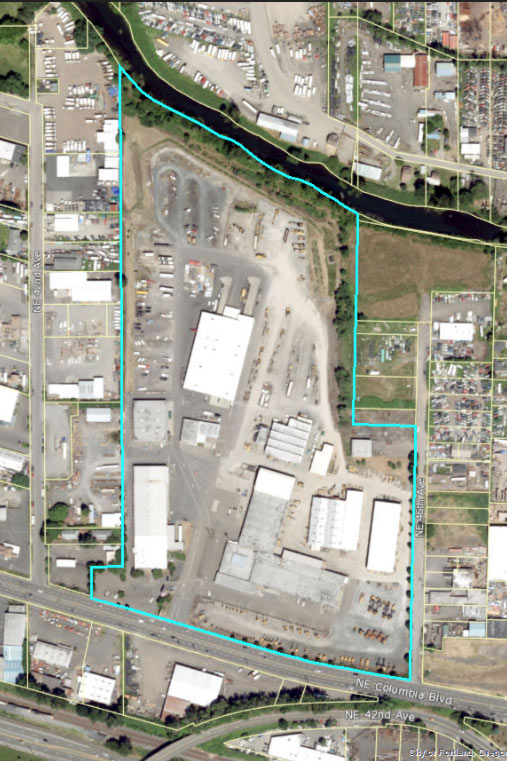
In the near future you’ll be seeing more TriMet buses in the neighborhood, but they won’t be just picking up and delivering passengers.
TriMet is in the process of having a new bus operations facility in the neighborhood for bus storage and maintenance. It will be on the five acres on the north side of Columbia Boulevard, just east of 42nd Avenue, in the Cully neighborhood. Since 1960, the property has been the home of Peterson Cat, the Caterpillar equipment dealer.
“TriMet’s 10-year expansion of transit is accelerating and we are adding more than 11,000 weekly service hours coming in the next five years,” said Roberta Altstadt, TriMet media relations & communications manager.
“To make this happen TriMet will be adding buses, hiring more operators and increasing necessary support staff and equipment. This will require space TriMet does not presently have.”
TriMet currently has about 690 buses and, by 2020, expects the need to grow to more than 900 buses. Its three bus operations facilities are already at capacity, so the service expansion will require a fourth bus headquarters.
TriMet looked at several locations for a fourth garage and the Caterpillar property was felt to have the best potential. Among the criteria is the proximity to the service area and access to major arterials to minimize bus travel to and from the route to the garage.
“Locating a garage in northeast Portland, where TriMet has some of its most robust bus service, allows buses to begin and end their routes closer to their home bases,” Altstadt explained. “This minimizes the time buses spend in traffic between the garage and the starts or ends of their service routes.”
TriMet’s outreach team has been working to notify residents and business owners in the area. It has sent postcards to addresses within a one-half-mile of the Caterpillar site.
What about an environmental impact from leaky buses or bulldozers? “Any potential cleanup is to be determined as we learn about the site condition,” Altstadt said. “TriMet values sustainability and we will meet or exceed environmental standards.”
What about buses going through Concordia, particularly 33rd Avenue? “Traffic studies are underway to determine what improvements TriMet might make to adjacent streets and sidewalks,” she explained.
“It is likely that a traffic signal and pedestrian crossings will be added at northeast Columbia and northeast 42nd.”
Steve Elder, East2@ ConcordiaPDX.org, is an inactive lawyer, a developer, activist and old grouch.
CNA Letter to PSC about the Residential Infill Project (RIP)
See attached for a copy of the letter that the Concordia Neighborhood Association submitted to the City of Portland Planning and Sustainability Commission on May 3, 2018 as public testimony on the Residential Infill Project.Residential_Infill_Project_Letter_CNA_May_3_2018-signed
